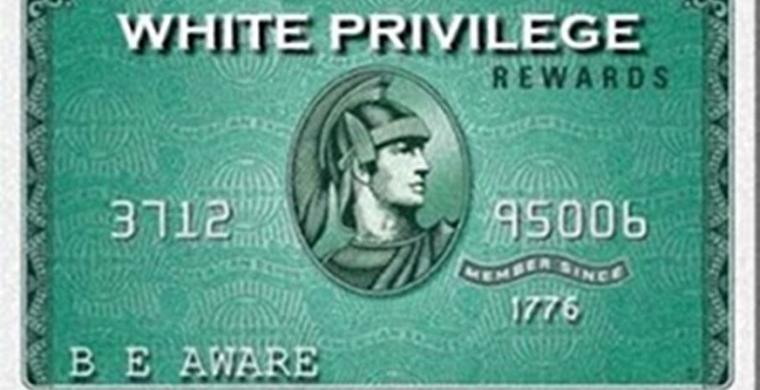The White Privilege of the Episcopal Church
By Michael Heidt in Salt Lake City
VOL Special Correspondent
www.virtueonline.org
July 3, 2015
Despite its vocal stance against racism and white privilege, the 78th General Convention of the Episcopal Church passed pro-gay legislation against the will of most of its Latino dioceses and the belief of the majority of the Anglican Communion, as represented by the predominantly African primates of the Global South.
Meeting in Salt Lake City, the Episcopal Church's General Convention passed two resolutions sanctioning gay marriage, A054 and A036, which authorize gay marriage liturgies and make the church's marriage canons gender-neutral. The resolutions were passed by a roll call vote in the church's House of Bishops, revealing that most of the denomination's Latino dioceses are against gay marriage.
Five of the Episcopal Church's seven Central American dioceses in Province IX, Honduras, Colombia, the Dominican Republic, Littoral Ecuador and Venezuela, voted against the Convention's two gay marriage resolutions. The same five dioceses also signed on to a minority report, released at the Convention, protesting the denomination's same-sex advocacy.
The Convention's gay advocacy also went against the will of over two thirds of the worldwide Anglican Communion's 80 million members, who are mostly African and come from the Global South. Following the Episcopal Church's approval of gay marriage, the primates of the Global South issued a statement, on July 2, sternly rebuking the North American denomination.
"This TEC Resolution is another example," stated the primates, "Of such unilateral decisions that are taken without giving the least consideration to the possible consequences on other provinces and the Anglican Communion as a whole, the ecumenical partnerships, the mission of the church worldwide, and interfaith relations."
The primates went on to accuse the Episcopal Church of contradicting Scripture and acting out of a misguided sense of pastoral care:
"This Resolution, clearly contradicts the Holy Scriptures and God's plan for creation as He created humankind as man and woman to complement each other physically and emotionally. Indeed the church must provide pastoral care for all, whether heterosexuals or homosexuals. However the church should not alter the teachings of the Holy Scriptures that was interpreted by the majority churches globally, to provide such pastoral care."
Unlike the Global South and Anglican dioceses in Central America, the Episcopal Church's membership is predominantly white. According to the 2014 Survey of Episcopal Congregations, 86% of Episcopalians are white, 6.3% are black, and only 3.6% are Latino.
Against this formidable backdrop of white privilege, the Episcopal Church is insistent in its efforts to combat racial injustice.
The church's budget for the next three years includes $2 million earmarked for "dismantling racism." The overwhelmingly white denomination took the radical step of electing its first ever black Presiding Bishop, Michael Curry. Curry, who is an avid supporter of gay marriage and LGBT rights, will take office in November.
Several resolutions at this year's General Convention address racism, too. D040, for example, urge the church to create an anti-racism curriculum for youth, and A024 resolves:
"That the 78th General Convention of The Episcopal Church, in accordance with our Baptismal Covenant and in the spirit of being inclusive, reaffirm and renew the directive to all dioceses, made by the 76th and 77th General Conventions, to examine the impact, including acts of racial discrimination, racial profiling, and other race-based acts of oppression, that the repudiated Doctrine of Discovery, as well as the related Doctrine of Manifest Destiny, has had on all people, especially on people of color and indigenous peoples."
However, regardless of the denomination's publically stated stance against racism, white leaders of the Episcopal Church appeared unconcerned about the impact their pro-gay policies would have on the black-led Global South.
When two representatives of the church's House of Bishops were asked by Press if they had discussed the consequences their same-sex policies would have on the Global South, the Bishop of the Convocation of Episcopal Churches in Europe, Pierre Whalon, stated that no discussion had taken place. Whalon also declared that there were "no consequences" and that "nothing has changed."
On July 2, following the Global South statement, both the Bishop of Kansas, Dean Wolfe, and the Bishop of Northern Pennsylvania, Sean Rowe, seemed unaware of the document. "I haven't read it," said Wolfe, who went on to say that "it is not our intention to alienate anyone by the decisions we make."
As Province IX voting and the statement from the primates of the Global South makes clear, the overwhelmingly white denomination has done just that, alienated the very "people of color" they claim to support. And, as the primates write, the leaders of the Episcopal Church have done so without regard for the consequences of their actions, or the beliefs of their Christian sisters and brothers in the developing world. These, apparently, will have to discover the error of their heterosexist ways.
The parallels with white colonialism are doubtless accidental and unconscious, suggesting a systemic racism within the Episcopal Church that remains untouched by resolutions, financial initiatives, and the election of a black gay rights activist as Presiding Bishop.
After the church voted to give gay marriage the green light, the Communications Director of the rump Diocese of Fort Worth, Katie Sherrod, declared, "This church is mired in white privilege."
She may have had a point.
Michael Heidt is Editor of Forward in Christ magazine and a priest in the Diocese of Fort
END














